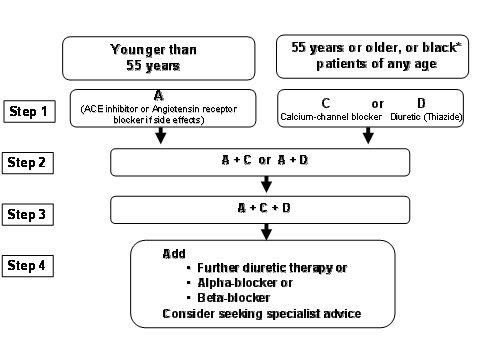From rxpgnews.com
New Guideance will Result in Better Control of Hypertension - BPA
By BPA
Jun 29, 2006 - 1:45:00 AM
The UK's blood pressure charity, the Blood Pressure Association (BPA), heralded 28 June, 2006 launch of the updated NICE guideline on the clinical management of hypertension as a major advance in the treatment of the condition. For the first time, NICE and the British Hypertension Society have reached a clear consensus on the best way of treating raised blood pressure, and the BPA strongly endorses this new guideline.
Professor Graham MacGregor, Chairman of the Blood Pressure Association, said: "This is a major step forward in the treatment of high blood pressure and tremendous news for the millions of people in this country with the condition.
"The new guideline can easily be followed by health professionals and people with high blood pressure. The net result will be much better control of blood pressure with far fewer strokes, heart attacks and heart failure. This is particularly so because the treatment combinations suggested are more effective and have less side effects."
A major change is that beta-blockers, which have been shown to be less effective in reducing strokes and more likely to cause diabetes2, are no longer recommended for the routine treatment of the majority of people with high blood pressure.
"Access to more effective drugs will be really welcomed by patients and will have implications, not only for the newly diagnosed, but for the many millions of people already on beta-blockers," said Professor MacGregor.
High blood pressure is the biggest preventable cause of death and disability in the UK through the strokes, heart attacks and heart failure that it causes. Poor blood pressure control results in approximately 125,000 unnecessary stroke and heart attack events every year, about half of which are fatal3.
Sarah Ransome, BPA Head of Information and Support, said: "Living with high blood pressure can be very difficult. We know from our own research that beta-blockers commonly cause side effects, including tiredness, lethargy, impotence and mood swings, and can enormously impact on that individual and their family's quality of life.
"The new guideline will result in better control of blood pressure by giving patients access to the best available treatments and encouraging dialogue between patients and their health professionals so that they can make informed decisions about their care."
 |
Professor MacGregor added: "We would encourage those people currently taking beta-blockers to talk to their GP or health professional on their next visit to discuss whether changing the medication in the fullness of time to newer medicines would be appropriate for them. People should not stop taking beta-blockers on their own as this will do far more harm than good. Furthermore, beta-blockers will continue to have an important role in the treatment of angina, heart failure and following a heart attack, or in women of child-bearing age with high blood pressure."
All rights reserved by www.rxpgnews.com
